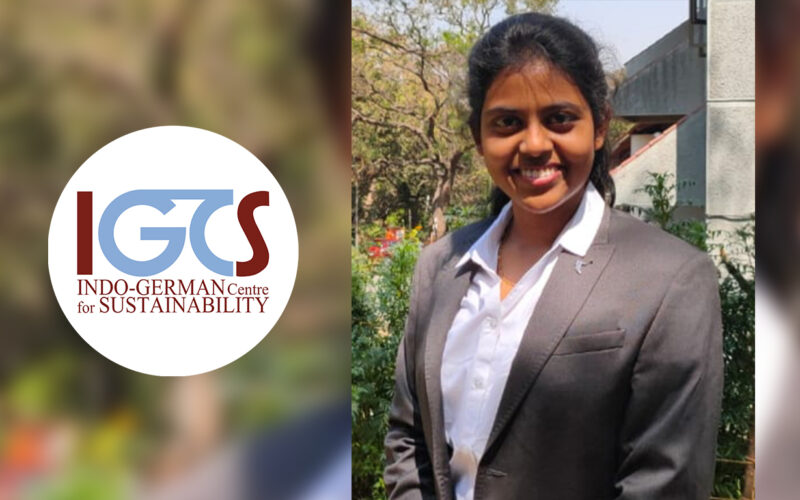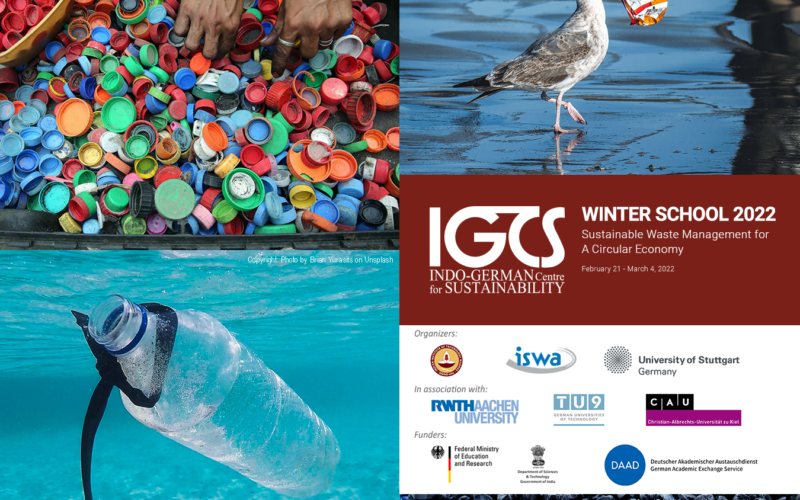-By Purnanjali Chandra
The water sector has always been intriguing, which eventually brought me to the Winter and later the Summer Schools in 2021 under the Indo-German Center for Sustainability (IGCS). Furthermore, having a postgraduate specialization in Water Policy and Governance from Tata Institute of Social Sciences, Mumbai, the courses at the IGCS added great value to my holistic and sub-sectoral understanding of the domain. It exposed me to discourses on inland water transportation (IWT), the complexities of converging ecosystems such as estuaries and mangroves formed due to saltwater-freshwater intrusion, their impacts on communities, and the challenges around ensuring sustainability and better governance.
The design of the courses during both the schools was optimized to enable the best imparting of knowledge in a virtual medium. A comparative narrative through case studies and scenario analysis has been a key component of the learning modules. Speakers from both India and Germany shared their expertise on various topics under IWT and saltwater – freshwater ecosystem across both schools. They spoke about the sustainable practices, the evolving nature of research and the models that have been designed, such as under the Federal Institute of Hydrology, Germany, to detect the chain of deteriorating climate change impacts on the IWT sector. Furthermore, extensive panel discussions followed these lecture sessions, which created a vivacious space for exchanging ideas and knowledge among panellists and school participants. The discussions underlined the developments, challenges and potential scopes for both countries to learn from one another. Through these varieties of sessions, the learning hours were mindfully mapped to allow us to know and process and absorb the information shared. During both the schools, the courses were designed with an interdisciplinary approach where science, society and policies were extensively discussed, such as during lectures on IWT, Indian and German environmental policies were analyzed besides technology while in lectures on saltwater-freshwater intrusion, the importance of community participation in ecosystem management were highlighted. These lectures and concepts made the most relevant sense to me during the “working group” sessions. These being intensively peer-driven gave us enough space to research and explored different facets of the topic chosen for the school.
Besides academics, a great part of the schools was the intercultural sessions on Zoom. Even during this pandemic, the session remarkably provided a great platform for making new friends and interacting with people of diverse cultures from different parts of the world.

Additionally, the Wonderme sessions during the summer school enhanced this experience for me. It served more like a virtual “out of classroom” interaction space for us. We were also given weekend activities that we showcased in the initial hours of the school on Mondays, which certainly helped us beat the Monday blues!! Even the student lectures designed as a part of the school accentuated the culture of peer-learning where students got the opportunity to present their research work and drive interesting discussions and exchange of ideas.

Every day of the two weeks spent virtually during both summer and winter schools had been an enriching experience for me. It was a vibrant space of constant learning and unlearning of aspects of the water sector with people of diverse capacities and interests. The working group culture was also one of the key motivations for my application. The opportunity to learn about a subject in detail and then present the same through teamwork and guidance of supervisors indeed felt quite rewarding to me. Last but not least, IGCS and its schools provided me with immense scopes of networking and helped me plan for my higher education.



